WORLD OF ART
School for curators and critics of contemporary art
Year 15 and 16
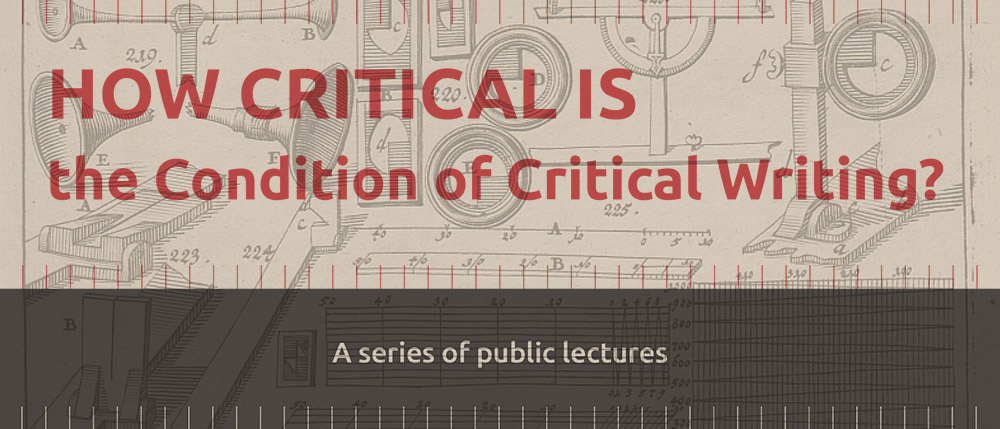
How Critical Is the Condition of Critical Writing?
A series of public lectures: March 2016 – October 2016
This year we will continue with How Critical Is the Condition of Critical Writing?, a reflection on the current role and status of criticism in visual arts and culture conceived last year, with a new series of lectures.
The reflection proceeds from the awareness that art criticism is an important part of the art system that makes it possible for art to fully fulfil its social role; but because art criticism is gradually disappearing from traditional media, changing in accordance with the digitisation of the media and the democratisation of cultural production, and losing its position in the “power relations” within art field, its role and position are becoming increasingly more unclear.
This year, our point of departure is last year’s conclusion that it makes more sense to talk, not about the crisis of criticism, which manifest in criticism that has drifted significantly from its traditional format, but rather about new forms of critique.
Lectures on changes in contemporary critical and theoretical production will be given by: Thijs Lijster, Ekaterina Degot, Maja Breznik, Izidor Barši & Kaja Kraner (ŠUM), Antonija Letinić and Fouad Asfour. We will begin with a short historical overview of art criticism, and then, by analysing various factors of the so-called crisis (of the identity) of criticism, redirect the discussion to “new spaces” for critique. We will take a look at how criticism has been transformed in accordance with technological changes from the printed to the digital, as well as in accordance with different politico-economic circumstances, the changing art production and institutional changes in the art field itself. We will try to explain how art criticism today is embedded into the art system and into the process of institutionalising art, and we will trace the position of art critics themselves. Our interest will especially focus on whether there is anything positive that the current state in the field of criticism can nevertheless bring and what is needed for these new “embodiments” or “spatialisations” of criticism to emerge.
This programme is being part of the World of Art, School for Curators and Critics of Contemporary Art; and prepared by SCCA–Ljubljana & the Igor Zabel Association for Culture and Theory.


2016
| March | Tuesday, 29 March 2016, 2.40–4.20 pm, Faculty of Arts (Room 343) |
Thijs Lijster: The Crisis of Criticism |
| Wednesday, 30 March 2016, at 6 pm, Project Room SCCA |
Thijs Lijster: Towards an “Espacement” of Criticism | |
| April | Tuesday, 5 April 2016, at 7 pm, Project Room SCCA |
Ekaterina Degot: When Everybody is Critical, but Nobody is a Critic |
| September | Tuesday, 27 September 2016, at 6 pm, Project Room SCCA-Ljubljana |
Maja Breznik: Presenting the Analysis “Where Has Fine-Art Criticism Gone?” |
| October | Thursday, 6 October 2016, at 6 pm, Project Room SCCA |
Izidor Barši & Kaja Kraner (ŠUM): Discourses Accompanying Art |
| Thursday, 13 October 2016, at 6 pm, Project Room SCCA |
Antonija Letinić: What Do We Talk About When We Talk About Criticism? | |
| December | Wednesday, 7 December 2016, at 4 pm, +MSUM, Maistrova 3, Ljubljana |
Fouad Asfour: Unlearning Art Writing |
Lectures will be partly in English and partly in Slovenian.
Partners: Department of Art History, Faculty of Arts, University of Ljubljana, and UGM – Maribor Art Gallery.


Supported by: City of Ljubljana – Department for Culture, ERSTE Foundation, and Goethe-Institut Ljubljana.



PROGRAMME
Thijs Lijster: The Crisis of Criticism
Tuesday, 29 March 2016, 2.40–4.20 p.m., Faculty of Arts (room 343), Aškerčeva 2, Ljubljana
What is the “crisis of criticism”, which has been the subject of so many debates during the past decade, and what are its origins? Can we even speak of a crisis, if criticism is virtually omnipresent? This lecture will begin with a brief historical overview of art criticism, followed by discussions on the function of the critic (e. g. interpretation, judgment, connecting the work to the socio-historical context), the use and misuse of criticism, and ways out of the crisis. I will argue that the critic has still an important role to play in the democratic public sphere.
Thijs Lijster: Towards an “Espacement” of Criticism
Wednesday, 30 March 2016, 6 p.m., Project Room, SCCA–Ljubljana, Metelkova 6, Ljubljana
In this lecture I will relate contemporary developments in art criticism to the “time-space compression” that characterizes modernity. The shift from modern to contemporary art in the 1980s comes with both a de-historicization and de-territorialisation of criticism. Although I consider this development critically, I argue that new theoretical sources might generate a discourse that allows us to step out of the expert field of traditional criticism, thus creating a new space for criticism.
 Thijs Lijster is assistant professor of philosophy of art and culture at the University of Groningen. He studied in Groningen and New York, and in 2012 received his PhD for his dissertation on Benjamin’s and Adorno’s concepts of art criticism. In 2010 Lijster won the Dutch/Flemish Prize for Young Art Criticism, and in 2015 the NWO/Boekman dissertation award. He has contributed to books such as Conceptions of Critique in Modern and Contemporary Philosophy (2012), Institutional Attitudes (2012), and No Culture, No Europe (2015), and coedited Spaces for Criticism. Shifts in Contemporary Art Discourses (2015).
Thijs Lijster is assistant professor of philosophy of art and culture at the University of Groningen. He studied in Groningen and New York, and in 2012 received his PhD for his dissertation on Benjamin’s and Adorno’s concepts of art criticism. In 2010 Lijster won the Dutch/Flemish Prize for Young Art Criticism, and in 2015 the NWO/Boekman dissertation award. He has contributed to books such as Conceptions of Critique in Modern and Contemporary Philosophy (2012), Institutional Attitudes (2012), and No Culture, No Europe (2015), and coedited Spaces for Criticism. Shifts in Contemporary Art Discourses (2015).
—
Ekaterina Degot: When Everybody is Critical, but Nobody is a Critic
Tuesday, 5 April 2016, 7 p.m., Project Room, SCCA–Ljubljana, Metelkova 6, Ljubljana
The recurring discussion about critical writing reminds us of a comparable discourse centered around the notion of painting. When asked, over and again, about the destiny of painting, one is tempted to reply shortly that it is dead. Obviously many artists do paint, provide for themselves by doing so, and even manage to remain historically relevant, but they avoid calling themselves painters. In a similar vein, most of us practice critical writing, sometimes on an everyday basis, but hesitate to present ourselves as professional critics. Where is critical thinking located in this entanglement of de-skilling and performativity?
You can attend the lecture on Wednesday, 6 April, at 6 p.m. in the Maribor Art Gallery / UGM Studio, Trg Leona Štukelj 2, Maribor.
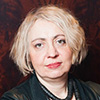 Ekaterina Degot is an art writer and curator, Artistic Director at the Academy of Arts of the World, Cologne, and professor at the Rodchenko Moscow School of Photography and Multimedia. In 2014 she won the Igor Zabel Award for Culture and Theory. Her resent curatorial projects include: Report to an Academy, a Non-Academic Symposium, Performative or Otherwise, Pluriversale I, Cologne, 2014 (with David Riff); What Did the Artist Mean by That?, Moscow Museum of Modern Art, 2014 (with Yuri Albert), and Monday Begins on Saturday, First Bergen Assembly, Bergen, Norway, 2013 (with David Riff). She co-edited Post-Post-Soviet?: Art, Politics and Society in Russia at the Turn of the Decade (Chicago University press, 2013).
Ekaterina Degot is an art writer and curator, Artistic Director at the Academy of Arts of the World, Cologne, and professor at the Rodchenko Moscow School of Photography and Multimedia. In 2014 she won the Igor Zabel Award for Culture and Theory. Her resent curatorial projects include: Report to an Academy, a Non-Academic Symposium, Performative or Otherwise, Pluriversale I, Cologne, 2014 (with David Riff); What Did the Artist Mean by That?, Moscow Museum of Modern Art, 2014 (with Yuri Albert), and Monday Begins on Saturday, First Bergen Assembly, Bergen, Norway, 2013 (with David Riff). She co-edited Post-Post-Soviet?: Art, Politics and Society in Russia at the Turn of the Decade (Chicago University press, 2013).
—
Maja Breznik: Presenting the Analysis “Where Has Art Criticism Gone?”
Tuesday, 27 September 2016, 6 p.m., Project Room, SCCA–Ljubljana, Metelkova 6, Ljubljana
In the analysis, I compare today’s visual-art criticism with newspaper criticism of the mid-1980s (I analyse newspapers Delo, Dnevnik, Večer, Primorske novice, Naši razgledi/Pogledi). I compare the public visibility of contemporary visual arts, content-related changes in art criticism and the socio-economic position of art critics. The analysis of contemporary visual-art criticism is complemented with an epistemological reading of contemporary expert articles and academic writings. Deriving from a “loud” symptomatic reading (Althusser 1965, Ginzburg 1986), I discern theoretical conceptions, the construction of the object of visual arts and the horizon and external borders of contemporary critical-theoretical production. I try to explain how art criticism fits into the art system and the process of institutionalising art, if it does at all.
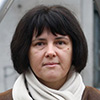 Maja Breznik is sociologist and a researcher at the Peace Institute. She studied at the Ecole des hautes études en sciences sociales in Paris (1989) and at the University of Ljubljana, where she also finished her PhD (2001). She received a fellowship at The Institute of International Education/Arts International (New York, 1992), and from 2002 to 2004 she was a researcher at Università degli studi di Padova, Department of Sociology. So far she has coordinated or participated in 15 research projects, including from the field of cultural policy. She has published several books: Obrt in učenost (Artisanry and Erudition, 2003), Kulturni revizionizem/Cultural Revisionism (2004), Kultura danajskih darov (The Culture of Danaan Gifts, 2009), Posebni skepticizem v umetnosti (Specific Scepticism in the Arts, 2011), Za napisom Nezaposlenim vstop prepovedan (Behind the Notice “No Admittance Except on Business”, 2014), and many chapters and articles. Lately she has been focusing on the issues of labor rights and private labor markets.
Maja Breznik is sociologist and a researcher at the Peace Institute. She studied at the Ecole des hautes études en sciences sociales in Paris (1989) and at the University of Ljubljana, where she also finished her PhD (2001). She received a fellowship at The Institute of International Education/Arts International (New York, 1992), and from 2002 to 2004 she was a researcher at Università degli studi di Padova, Department of Sociology. So far she has coordinated or participated in 15 research projects, including from the field of cultural policy. She has published several books: Obrt in učenost (Artisanry and Erudition, 2003), Kulturni revizionizem/Cultural Revisionism (2004), Kultura danajskih darov (The Culture of Danaan Gifts, 2009), Posebni skepticizem v umetnosti (Specific Scepticism in the Arts, 2011), Za napisom Nezaposlenim vstop prepovedan (Behind the Notice “No Admittance Except on Business”, 2014), and many chapters and articles. Lately she has been focusing on the issues of labor rights and private labor markets.
—
Izidor Barši and Kaja Kraner (ŠUM): Discourses Accompanying Art
Thursday, 6 October 2016, 6 p.m., Project Room, SCCA–Ljubljana, Metelkova 6, Ljubljana
Proceeding from the analysis of certain current approaches to the theorisation of contemporary visual arts in Slovenia, which can be said to belong to the critical-theoretical “expert discourse”, we use the concept of discursive architectonics (Eva D. Bahovec) to try to reconstruct and analyse: 1) the various approaches of placing art within a broader field, most often the “social” or “outside” field or the “other/inartistic” field, and placing the authors themselves and their discursive practise in the same fields; 2) the material effects of this placement.
Because theoretical discourses on art are inevitably based on the modern concept of art as an autonomous sphere and because – in line with this – most writers also inevitably assume a certain development of this concept, we try to think about what kind of a relation can exist between a specific theoretical/discursive practise or context and the “particular condition” of the writer and about what real/material effects the two can have on the art field itself.
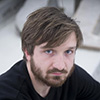 Izidor Barši holds a degree in philosophy and sociology of culture at the Faculty of Arts in Ljubljana. He has contributed texts on philosophy, art and architecture to Tribuna, Mladina, Delo, Praznine, and Emzin. Since 2010, he has been a regular contributor at the culture and the humanities desk at Radio Študent; since 2013 he is a member of the editorial board of Šum magazine. Between 2014 and 2015 he was the editor of Tribuna magazine. In addition, he has helped organise and lead a few theoretical reading seminars focused on philosophy and theory at the Museum of Contemporary Art, Moderna galerija, and Rog Factory.
Izidor Barši holds a degree in philosophy and sociology of culture at the Faculty of Arts in Ljubljana. He has contributed texts on philosophy, art and architecture to Tribuna, Mladina, Delo, Praznine, and Emzin. Since 2010, he has been a regular contributor at the culture and the humanities desk at Radio Študent; since 2013 he is a member of the editorial board of Šum magazine. Between 2014 and 2015 he was the editor of Tribuna magazine. In addition, he has helped organise and lead a few theoretical reading seminars focused on philosophy and theory at the Museum of Contemporary Art, Moderna galerija, and Rog Factory.
 Kaja Kraner primarily works as a writer of critical, theoretical texts and radio shows in the field of contemporary art. She helps create the programme of Pekarna Magdalenske mreže, is a member of the editorial board of Šum and a co-editor of Art-area, an emission on Radio Študent. In addition, she (co-)leads reading seminars on contemporary art organised by Šum and Neteorit collective. She has focused especially on the relations between art, politics, and theory, as well as on the production conditions of contemporary art. She is currently exploring the concept of the geopolitics of art in the framework of her PhD.
Kaja Kraner primarily works as a writer of critical, theoretical texts and radio shows in the field of contemporary art. She helps create the programme of Pekarna Magdalenske mreže, is a member of the editorial board of Šum and a co-editor of Art-area, an emission on Radio Študent. In addition, she (co-)leads reading seminars on contemporary art organised by Šum and Neteorit collective. She has focused especially on the relations between art, politics, and theory, as well as on the production conditions of contemporary art. She is currently exploring the concept of the geopolitics of art in the framework of her PhD.
—
Antonija Letinić: What Do We Talk About When We Talk About Criticism?
Thursday, 13 October 2016, 6 p.m., Project Room, SCCA–Ljubljana, Metelkova 6, Ljubljana
In this lecture I will reflect upon changes in art criticism in the context of media transformation, including technological changes, as well as through interrelation with changes in art production. Traditional media have been changing the way they produce media content: we have seen PR replacing journalistic work, the dissolution of the news room, the disappearance of various journalistic forms (reportage, research journalism, criticism), and on the other hand the blurring of the borders between forms (criticism – report – review). These changes include the technology through which the content is presented and distributed as well as transformation of news production into a commodity. In the lecture I will also deal with the relation between critical art and art criticism in this aspect of the interdisciplinarity of art and where these forms clash and interfere.
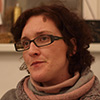 Antonija Letinić is Editor-in-chief of the Internet publication Kulturpunkt.hr (based in Zagreb) and is in charge of other projects run by the organisation Kurziv – Platform for Matters of Culture, Media and Society – such as the educational programme Kulturpunkt’s Journalistic School ‘World of Art’ and programme Criticism – Past, Present, Future. She is one of the founders of the organisation Nemeze – an Association for the Development of Non-Profit Media as well as a member and a president of the organisation Kurziv that runs Kulturpunkt.hr.
Antonija Letinić is Editor-in-chief of the Internet publication Kulturpunkt.hr (based in Zagreb) and is in charge of other projects run by the organisation Kurziv – Platform for Matters of Culture, Media and Society – such as the educational programme Kulturpunkt’s Journalistic School ‘World of Art’ and programme Criticism – Past, Present, Future. She is one of the founders of the organisation Nemeze – an Association for the Development of Non-Profit Media as well as a member and a president of the organisation Kurziv that runs Kulturpunkt.hr.
—
Fouad Asfour: Unlearning Art Writing
Wednesday, 7 December 2016, 4 p.m., +MSUM, Maistrova 3, Ljubljana
Writing on art moves between different spaces of publication and discursive fields. Art discourse around the world is struggling in complex and shifting tension between the art market, contemporary art, and exhibition practices. It necessitates a critical reflection of discourses on “globalized art” as well as of the relation between art writing and art education.
My lecture interrogates the conditions of art writing by critically reflecting upon the colonial matrix of power in art education. Using examples from contemporary art, I will argue that the disobedient body of the writer to become visible through a change in voice, through linguistic guerrilla (Moroccan writer Mohamed Khair-Eddine) and linguistic terrorism (Chicana feminist and queer theorist Gloria Anzaldua).
 Fouad Asfour, art writer, editor, and linguist, works in collaborative frameworks on publications, exhibitions, performances, and art exchange projects. He has worked for various art institutions and research projects, was part of the documenta 12 magazines project, and is a member of the artist collective the Dead Revolutionaries Club. In 2011 he initiated the independent publishing project Pole Pole Press and is the co-founder of the self-organized student support initiative Thekgo Bursary (now in collaboration with Canon Collins Trust). He holds an MA in linguistics from Vienna University and is currently completing an MA in creative writing at Rhodes University in Grahamstown, South Africa. He lives between Johannesburg and Vienna. In 2008 he was a grant recipient of the Igor Zabel Award for Culture and Theory.
Fouad Asfour, art writer, editor, and linguist, works in collaborative frameworks on publications, exhibitions, performances, and art exchange projects. He has worked for various art institutions and research projects, was part of the documenta 12 magazines project, and is a member of the artist collective the Dead Revolutionaries Club. In 2011 he initiated the independent publishing project Pole Pole Press and is the co-founder of the self-organized student support initiative Thekgo Bursary (now in collaboration with Canon Collins Trust). He holds an MA in linguistics from Vienna University and is currently completing an MA in creative writing at Rhodes University in Grahamstown, South Africa. He lives between Johannesburg and Vienna. In 2008 he was a grant recipient of the Igor Zabel Award for Culture and Theory.
Archive of lectures How Critical Is the Condition of Critical Writing? in Season 15 (2014-2016)